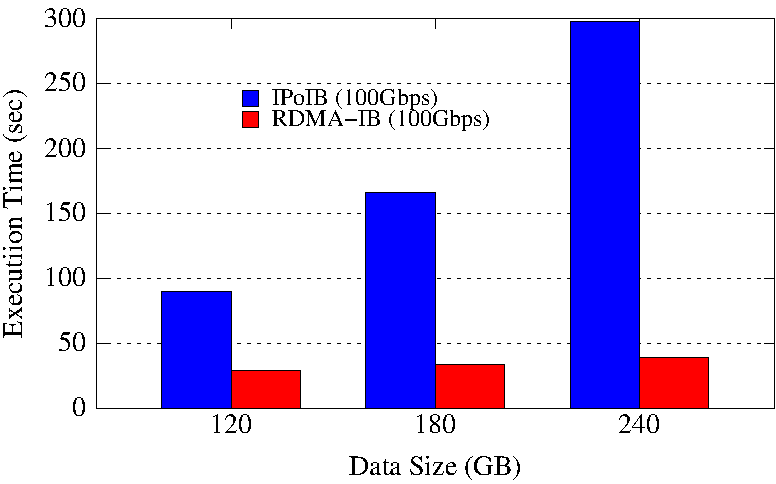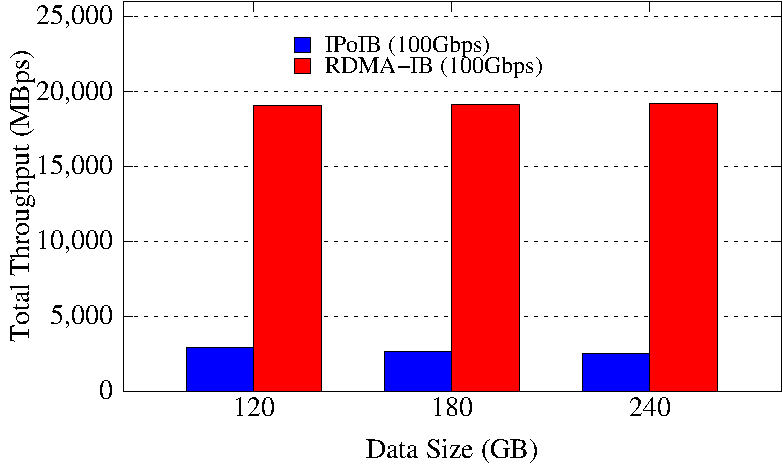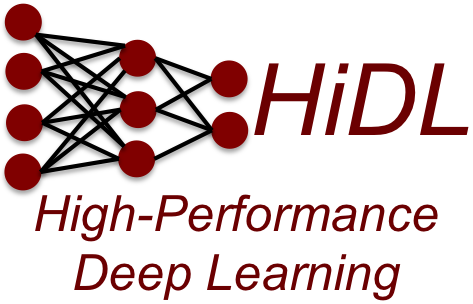In HHH-M mode, we evaluate RDMA-enhanced MapReduce over RDMA-enhanced HDFS with in-memory I/O operations. For detailed configuration and setup, please refer to our userguide.
TestDFSIO Latency and Throughput
TestDFSIO Latency

TestDFSIO Throughput

Experimental Testbed: Each node in OSU-RI2 has two fourteen Core Xeon E5-2680v4 processors at 2.4 GHz and 512 GB main memory. The nodes support 16x PCI Express Gen3 interfaces and are equipped with Mellanox ConnectX-4 EDR HCAs with PCI Express Gen3 interfaces. The operating system used is CentOS 7.
These experiments are performed in 8 DataNodes with a total of 64 maps. Each DataNode has a single 2TB HDD, single 400GB PCIe SSD, and 252GB of RAM disk. HDFS block size is kept to 128 MB. Each NodeManager is configured to run with 12 concurrent containers assigning a minimum of 1.5GB memory per container. The NameNode runs in a different node of the Hadoop cluster. 70% of the RAM disk is used for HHH data storage.
The RDMA-IB design improves the job execution time of TestDFSIO by a maximum of 7.6x over IPoIB (100Gbps). It provides a maximum of 7.7x benefit in throughput experiment, compared to IPoIB (100Gbps).



